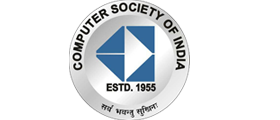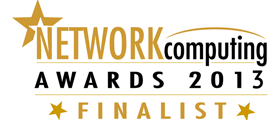Through various research fields, we explore the thesis ideas based on MATLAB and contribute some of the significant thesis concepts in this article. One needs to be updated in latest techniques to frame a good topic. It generally takes more time and energy. Your ideas should be clear about what you are going to look for, keep it mind with readily available of your resources and also available information. So, to ease down this process, it is necessary to avail our experts help. Get interesting thesis ideas on your area with our valuable tips. This will help you in deciding a topic that requiring MATLAB:
Engineering
- Control Systems: For industrial automation or robotics using MATLAB and SIMULINK, we create and simulate the latest control tactics.
- Signal Processing: Innovative algorithms are created for processing the image or audio like feature extraction techniques or noise reducing methods.
- Renewable Energy Systems: Renewable energy systems such as wind turbines or solar panels are designed and upgraded which mainly concentrate on capacity and synthesization of the power grid.
- Mechanical System Design: As a means to examine and refine the mechanical systems, we accomplish MATLAB such as thermal management in engines or frequency diagnosis.
Computer Science and Information Technology
- Machine Learning and Data Science: By employing MATLAB’s machine learning toolkit, the forecasting models are formulated which mainly concentrate on applications such as anomaly detection in huge datasets and customer behavior prediction.
- Computer Vision and Image Processing: The image analysis methods are developed in the same way as 3D image reconstruction, facial recognition and object detection.
- Cybersecurity Simulations: To enhance or verify the cybersecurity protocols, the network threats and safeguards have been simulated.
- Algorithm Development: For effective data processing, searching or sorting, we develop and verify algorithms.
Electronics and Electrical Engineering
- Power Systems Analysis: We deploy MATLAB to simulate and examine the power systems dynamics, stability studies and fault diagnosis.
- Embedded Systems and IoT: Prototypes and algorithms are being evolved for IoT devices which highlight the real-time processing and data acquisition.
- Telecommunications: Communication systems include signal propagation; digital modulation methods and antenna design are created and simulated by us.
- Electrical Machines and Drives: Electrical machines are evaluated and simulated that mainly concentrate on better performance and conservation of electricity.
Biomedical Engineering and Life Sciences
- Biomedical Signal Processing: The biomedical signals are reviewed such as EEG or ECG that emphasize the disease prediction and feature extraction.
- Bioinformatics: By means of MATLAB, we can analyse the genomic or proteomic data incorporating the biological evaluation and gene expression analysis.
- Medical Image Analysis: Medical images are getting advanced and explored such as MRI or CT by advancing the algorithm.
- Pharmacokinetics Modeling: In the human body, we simulate drug intakes and metabolism.
Physics and Astronomy
- Astrophysical Simulations: Astrological events like star formation, galaxy evolution, black holes, we simulate the model.
- Quantum Mechanics Simulations: For enhancing the quantum computing algorithms or interpreting the structural physics, the quantum systems have been simulated.
- Material Science Analysis: The physical features, nanotechnology applications or stress-strain analysis are modeled with the help of MATLAB.
- Optical Systems Design: Optical systems involving laser applications, light propagation and lens structure are investigated and simulated.
Environmental Science and Geology
- Climate Modeling: To design and consider weather changing events that involve sea-level rise simulations, precipitation and temperature, make use of MATLAB.
- Geospatial Data Analysis: In resource management, environmental monitoring or urban planning, the geographical data are examined for programs.
- Hydrological Modeling: Water resources are being modelled which requires flood prediction, river flow or water quality analysis.
- Seismology and Earthquake Engineering: On account of forecasting the symptoms of earthquake and modeling the consequences of earthquakes on frameworks, the earthquake report is explored by us.
What are the common components of an MPhil thesis?
The term MPhil stands for Master of Philosophy and it’s diverse from Master’s and Doctor’s level. The various elements involved in an MPhil thesis are illustrated by us:
- Title Page
- Title: Research title should be explicit and brief that must indicate the essence of your thesis substance.
- Your Name
- Degree Title: For instance, the degree is Master of Philosophy.
- Department and University
- Date of Submission
- Abstract
- Overview your thesis which involves the methods, research question, main result and conclusion.
- The words in the abstract are typically around 200-500 words.
- Acknowledgements (Optional)
- In this part, you can express the gratitude towards mentors, staff and nobles and any other people or institutions by specifying them, those who provide assistance in the research and guide you well.
- Table of Contents
- The key sections, chapters and significant pages have to be mentioned. As an example figures, supplements and tables.
- List of Figures and Tables (if applicable)
- For all figures and tables, offer the elaborated schedule with page numbers that are embedded in the document.
- Introduction
- Your thesis main goals or hypothesis should be offered in a summary and display the research topic, define the study issues and present a setting or background.
- Literature Review
- In preliminary literature, conduct extensive analysis that must be relevant to the research subject.
- The gaps are detected in the modern study which the thesis intends to contribute.
- Methodology
- Give an extensive note on utilized research methods.
- How the selected methods are relevant for your research should be clarified and address the boundaries.
- Research Findings/Results
- The data should be exhibited and present the results of your study.
- It usually involves graphs, statistical analyses and tables.
- Discussion
- Ensure whether the understanding of the findings coordinate with the research question and the modern literature.
- The relevance and consequences of the result has to be considered.
- Conclusion
- Provide the outline of your thesis.
- You have to address the constraints of the research and advise a few areas for upcoming study.
- References/Bibliography
- In terms of a stable reference format, the extensive list of all sources must be mentioned.
- Appendices (Optional)
- Here, you can incorporate the additional material which is not significant in the main body. For example, extensive methods, supplementary analyses and enlarged data.

MATLAB Thesis Writing Ideas
matlabsimualtion.com offers comprehensive assistance for all areas of MATLAB using best Simulink tools and techniques just a message is enough we will provide you with latest and innovative thesis writing ideas as we follow a special workflow pattern, we always attain success. Each and every stage we share the work that we have did and only after your acknowledgment we will move to the next step.
- Power Control for Full-Duplex D2D Communications Underlaying Cellular Networks
- Spectrum-Efficient Transmission Mode Selection for Full-Duplex-Enabled Two-Way D2D Communications
- Joint Rate and Coverage Design for UAV-Enabled Wireless Networks with Underlaid D2D Communications
- An Implementation of RTS/CTS Mechanism and CS Algorithm for Maximum Performance of D2D Communication
- Secure beamforming in cooperative D2D communications with simultaneous wireless information and power transfer
- Social-Aware and Payment Incentivized Caching for D2D Communications
- Authentication and Key Agreement Based Binary Tree for D2D Group Communication
- On the performance of mode selection for hybrid-duplex D2D communications
- Virtual Frequency Allocation Technique for D2D Communication in a Cellular Network
- A Joint Cluster Formation Scheme With Multilayer Awareness for Energy-Harvesting Supported D2D Multicast Communication
- Resource Allocation Algorithm for D2D Communication in Cellular Networks Based on Hungarian Algorith
- Optimal density and power allocation of D2D communication under heterogeneous networks on multi-bands with outage constraint
- Performance Analysis of Relay-Based Two-Way D2D Communications With Network Codin
- Cognitive and Energy Harvesting-Based D2D Communication in Cellular Networks: Stochastic Geometry Modeling and Analysi
- Security of Energy Harvesting Based D2D Communications in Cognitive Cellular Network
- Energy Efficiency and Spectral Efficiency Tradeoff in Device-to-Device (D2D) Communications
- System performance of LTE-advanced network with D2D multi-hop communication
- Energy efficiency optimization for D2D communications based on SCA and GP method
- A multi-hop relay based frequency synchronization for D2D communication in 3GPP LTE syste
- Operational Region of D2D Communications for Enhancing Cellular Network Performance












